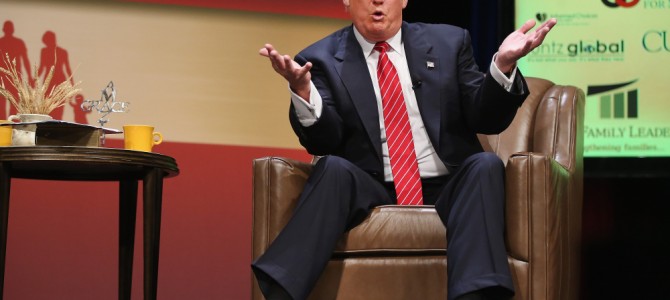What is likely to happen to the Republican Party in the event of a Donald Trump loss on November 8th is this: nothing will change.
Assume for the sake of argument that Trump loses by a fairly normal proportion of the electorate – that the House is held by Republicans, and the Senate is either held or the majority lost, but not badly. What will everyone’s incentives be in response to this?
For the elected Republicans, the party brass, and the consultant class, the incentive will be to do what they always do: circle the wagons, blame right-wingers and talk radio for sowing dissent and distrust, work to preserve all possible levers of power, and concentrate even more if possible. Reince Priebus is an effective fall guy – let’s rewrite the autopsy and move on from there.
For the conservative organizations and the grassroots, the incentives will be similar: they will blame the feckless elected Republicans and party leadership for Trump, noting their resistance to any reforms that could’ve prevented Trump’s rise, and shift to attacking Mitch McConnell and Paul Ryan for the inevitable sellouts to Hillary Clinton.
For the Trump-backing portion of the party, they will condemn those who broke ranks to oppose Trump’s rise, blame the Republican Party for not doing enough to back him, note the failure of both wings to learn anything at all from 2016, lean into what remains of Trump’s media friends to create their own echo chamber, grow angrier at the Washington GOP for not prioritizing their issues, and prepare their coalition to do the same thing in 2020.
It’s notable that all the voices calling for a grand post-Trump reunification and rethinking are the same ones calling for internal reform of the Republican Party for years. They were largely ignored up to now, and provided the leadership of the party remains the same, they’ll be ignored after November 8th as well. There is no current movement afoot to challenge Mitch McConnell, even after the agenda he pushed through the Senate proved so unpopular among Republican voters. The expectation is that things will stay the same – the Republican agenda, safely ensconced in amber, starts again once Trump departs the stage.
For sake of comparison, consider the different approach British conservatives adopted in the wake of Brexit. Brexit wasn’t David Cameron’s fault. But when his side of the argument lost a huge fight, a fight that discredited him and those allied with him, it’s understood that leaders should step aside to allow new blood to come in. Theresa May has already done an admirable job of giving a new face to her party and a new message regarding the populist impulses of the British people.
Not so in the Washington Republican leadership, where such roles are sacred life appointments. Mitch McConnell’s role will not change. Conservatism Inc. and the Trumpists will hate him and raise money based on the conservative base’s hatred of him. There will be no replacement who functions as an honest broker between the factions of the party as opposed to a representative of a faction.
The Republican Party is about to be torn from two different directions. Trumpists will abandon it because they believe it was insufficiently pro-Trump. Anti-Trumpists will abandon it because it nominated Trump. And the fact that the party is not interested in sending an obvious clear message that it is changing – that it ought to accept responsibility for the failure at Klendathu – means that visually and practically there will be no significant shift in leadership, no dramatic change in policy, and above all, no new personnel.
Imagine David Cameron stayed. That’s where the Republican Party will be after November 8th. And that’s how it’s likely to remain heading into a midterm that will have more fractious primaries than ever.









